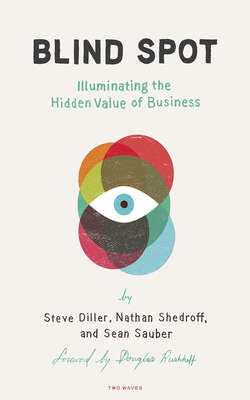Читать книгу Blind Spot - Nathan Shedroff - Страница 10
На сайте Литреса книга снята с продажи.
Relationships and Opportunities
ОглавлениеWhat defines a relationship with a company instead of another person? Put simply, it’s a connection with a company that someone values. You can use a product to do a task, but for many of the things you own and use, you don’t value them beyond their functions. A relationship is different. It grows out of the customer’s interactions with your company. It can be quite strong and even have human dimensions, and it’s an opportunity for a company to create a long-term customer.
Such a definition may seem strange or overstated, but research has shown that people see and react to brands and businesses much as they do to other people. In the 1990s, for example, Stanford researchers Cliff Nass and Byron Reeves found that users of devices such as computers and microwave ovens often treated these objects as if they were human. In other words, they used a shorthand with these objects that granted them a kind of “virtual personhood.”1 Everyone knows that a microwave isn’t a person, nor a computer, but it’s much easier to treat it as if it were—and to expect the same treatment, in kind. This grants the device (or company) the permission to have and express emotions, personalities, and even agency—but only as long as it acts like like a decent human being. The moment the company crosses the social boundaries of acceptable behavior (like ignoring your pleas to cancel your service), the same power that builds brand value allows it to be destroyed—even faster. That colleague you trust at work, that you treat with respect? Once you find him to be a purposeful impediment to your own tasks, he’s no longer an ally but an adversary—or even an enemy. This is the nature of human relationships, and it’s the same with how you expect devices, services, and organizations to behave. The value you grant them (or revoke) is entirely built on the relationships you build.
In a ground-breaking study in 1998, Susan Fournier (a noted management scholar and researcher on brand value) argued that brands and customers do forge meaningful relationships. The reason is fairly simple. We’re human, and as humans, it’s what we do. We grow up learning how to forge relationships with other people. When we interact with products or companies, we default to what comes naturally.
Of course, products and companies aren’t people. It may not make sense to love Disney, or you may be disappointed that the creator of a mobile device espouses a cause you dislike, but it happens. You might get angry and frustrated at a vending machine. You possibly love shoes or one of your home appliances. You may feel like you’re greeting an old friend returning from a trip abroad when you crack open your favorite soda. It’s how humans make sense of the complex world around them. It’s just how we are.
Unfortunately, most companies don’t understand this tactic and don’t invest in relationships, at least not in a continuous, strategic way. It’s easy to understand why. Relationships are fuzzy, not easily measured, and they mean different things to different people. Marketers talk about them, but few businesses treat them as strategic assets. Walk into a boardroom, and you can get a long way talking about income statements, P&L, CapEx, and ROI. Talk about relationships, and few people want to listen, especially if the business isn’t doing well. When challenged, there’s not yet any way to point to the value of relationships in an organization’s financials because the value is spread throughout all of the statements. It doesn’t feel real, but it’s encapsulated everywhere a company does business. Relationships don’t seem real or concrete enough to act upon. They’re seen as a byproduct of other activities, something that happens on their own as long as you take care of other things.
For most businesses, relationships are a major factor in building what’s known as premium value. Premium value indicates how much more a customer would pay for one product or service over an equivalent replacement. A relationship-conscious company like Disney can charge much more per visit to its parks than Six Flags. Coke sells for more than generic soda. And Apple can charge much more than its rivals for products that do much the same thing.
You might think we’re merely talking about one product being better than another. That’s not the entire story, though, as good relationships start with products that work. But functionality is table stakes these days, and premium brands don’t stress functional attributes. Almost any company can build products that do what they’re supposed to do, or it can offer unique features that don’t really matter. However, most companies have to compete on price, and relatively few understand how to create the kinds of experiences that build a durable relationship that customers value and that transcend price.
